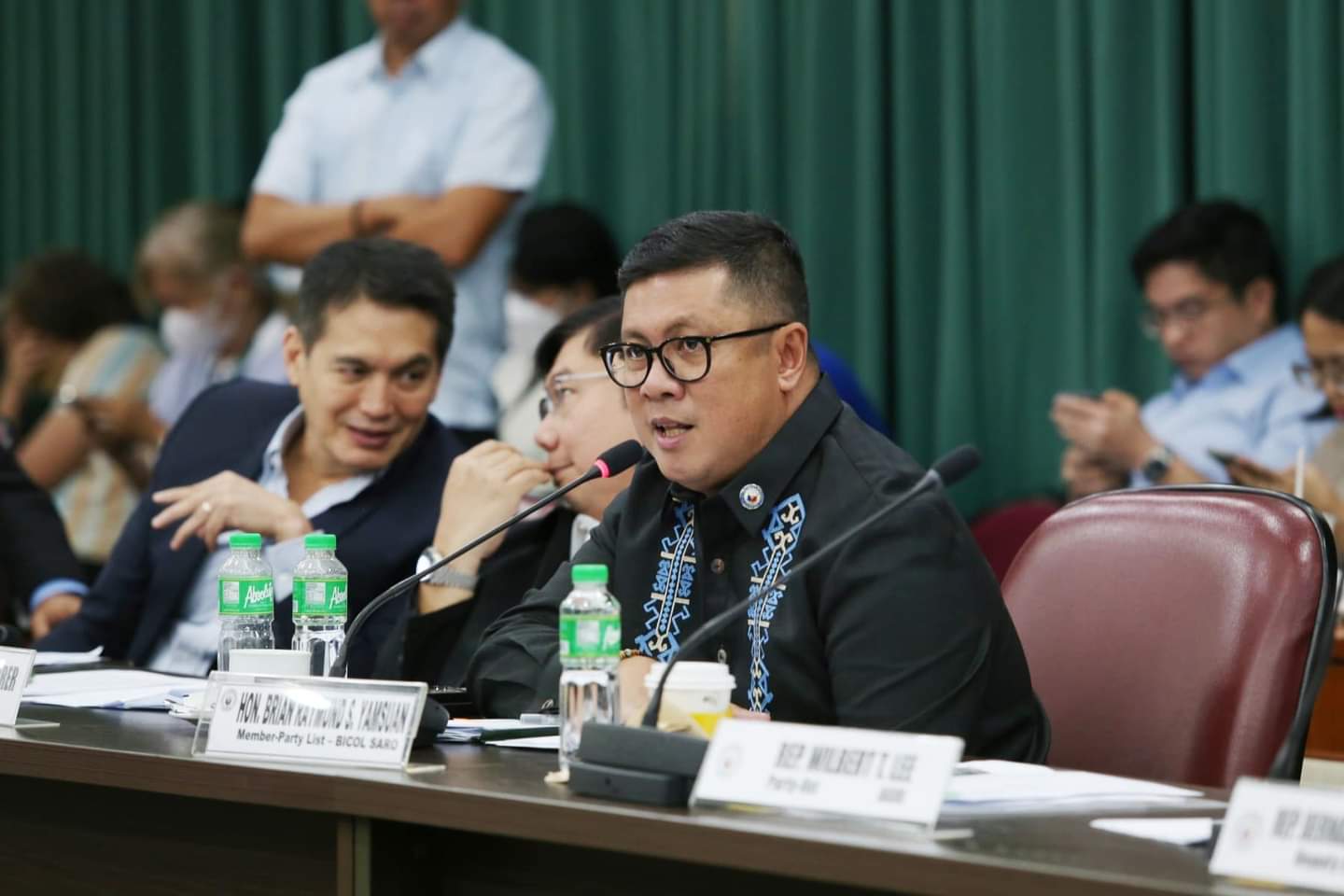Yamsuan bill on free master's degree tuition for government workers to benefit public school teachers
At A Glance
- Bicol Saro Party-list Rep. Brian Raymund Yamsuan's pending bill on providing free tuition to government employees who are pursuing master's degrees will be a big boon for public school teachers in light of the Department of Education (DepEd)'s expanded career progression system.
 Bicol Saro Party-list Brian Yamsuan (Facebook)
Bicol Saro Party-list Brian Yamsuan (Facebook)
Bicol Saro Party-list Rep. Brian Raymund Yamsuan's pending bill on providing free tuition to government employees who are pursuing master’s degrees will be a big boon for public school teachers in light of the Department of Education (DepEd)’s expanded career progression system.
Yamsuan on Wednesday, Dec. 4 urged fellow lawmakers to pass his proposed measure--House Bill (HB) 8834--in this Congress to aid the career growth of government personnel who lack the required master’s degree for promotion but cannot pursue graduate studies due to financial constraints.
HB No.8834 or the proposed Free Master’s Degree Tuition for Government Employees Act, covers both career and non-career workers in the public sector who will enroll in state universities and colleges (SUCs) to complete their graduate studies.
“Under the implementing rules and regulations (IRR) of the expanded career progression system for public school teachers signed by DepEd Secretary Sonny Angara, the promotion process for public school teachers would now be faster because they can now choose to either continue teaching or move to administrative roles, unlike before when their only option was the latter," Yamsuan said.
"But these higher positions require them to pursue or complete a master’s degree, which many of them cannot afford,” he noted.
“Thus, we are appealing to our colleagues in Congress to approve House Bill No.8834 to help thousands of teachers who are otherwise qualified to be promoted but lack the required master’s degree or units,” added Yamsuan, who issued the call on the occasion of National Government Employees Week.
Under the IRR for the public school teachers’ career progression system outlined in Executive Order (EO) No.174, the base of the public school teachers’ career system will now include the additional teaching positions of Teachers IV up to VII.
The positions of Master Teacher I to IV will form the Classroom Teaching Career Line and will include the additional position of Master Teacher V.
The School Administration Career Line, meanwhile, covers the positions of School Principal I up to IV. These career lines require additional academic units leading to a master’s degree or the completion of a master’s degree.
Aside from public school teachers, Yamsuan said other civil service employees will be encouraged to continue professionalizing their ranks, “which will redound not only to their benefit, but to the benefit of their clientele—the Filipino people".
Yamsuan recalled that when he first filed HB No.8834, he received several positive feedbacks from government workers who welcomed the proposal and expressed the hope that it would be approved in the current 19th Congress.
The bill states that the free tuition covers a master’s program of a maximum of two years in any SUC where the government employee has successfully sought admission.
To qualify for the free tuition benefit, government employees must be employed for at least five years at any time after the effectivity of the proposed measure, and should also pass the entrance tests and other admission and retention requirements of the SUC where he or she is applying for the master’s program.
Those who fail to complete the master’s degree within a year after the period prescribed in their graduate education program will be rendered ineligible for the benefit and charged the tuition and other school fees as determined by the governing board of the SUC where they were enrolled.
Government employees who were already granted any state-sponsored graduate education scholarship, whether public or private, here or overseas; those with pending administrative charges involving grave offenses; and those who fail to comply with the admission and retention policies of the SUC are ineligible to avail of the free tuition under the bill.